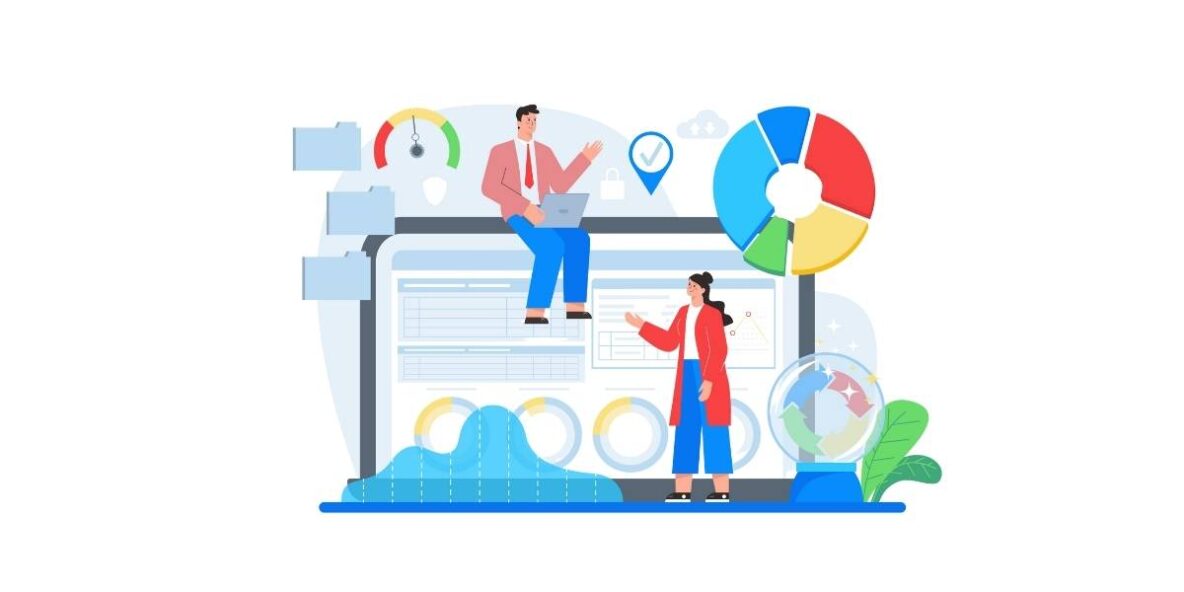Introduction: What is Google Analytics?
As a small business owner, you may be wondering whether investing in analytics is worth your time and money. The answer is simple: yes. Google Analytics is a powerful tool that can provide valuable insights into your website traffic, audience behavior, and marketing efforts. In this article, we’ll explore the power of Google Analytics and why small businesses need it.
Google Analytics is a web analytics service provided by Google that tracks and reports website traffic. It’s a free tool that allows you to see how users interact with your website, where they come from, and what they do while they’re there. It provides valuable data that can help you make informed decisions about your website and marketing strategies.
The Benefits of Using Google Analytics for Small Businesses
- Track Website Traffic and Performance
Google Analytics provides a wealth of data on your website’s performance. You can see how many visitors you’re getting, where they’re coming from, and which pages they’re visiting. This information can help you identify which pages are performing well and which ones need improvement. You can also track your website’s bounce rate, which measures how many visitors leave your site after viewing only one page. By tracking your bounce rate, you can identify potential issues with your website’s design or content.
- Gain Insights into Audience Behavior
Google Analytics provides detailed information on how users interact with your website. You can see how long they stay on each page, which pages they visit most often, and which pages they exit from. This data can help you understand your audience’s behavior and preferences. You can use this information to create more targeted content and improve your website’s user experience.
- Measure the Effectiveness of Your Marketing Efforts
Google Analytics allows you to track the effectiveness of your marketing campaigns. You can see how many visitors come to your site from each marketing channel, such as social media, email, or paid advertising. This information can help you determine which channels are driving the most traffic and which ones are not. You can use this data to adjust your marketing strategies and allocate your resources more effectively.
- Make Informed Business Decisions
Google Analytics provides valuable data that can help you make informed business decisions. By understanding your website’s performance and audience behavior, you can identify areas for improvement and make changes that will benefit your business. You can also use this data to identify new opportunities for growth and expansion.
How to Get Started with Google Analytics
Getting started with Google Analytics is easy. First, create a Google Analytics account and add the tracking code to your website. Once you’ve done that, you’ll be able to access a wealth of data on your website’s performance and audience behavior.
Conclusion
In conclusion, Google Analytics is a powerful tool that can provide valuable insights into your website traffic, audience behavior, and marketing efforts. By using Google Analytics, small businesses can track website traffic and performance, gain insights into audience behavior, measure the effectiveness of marketing efforts, and make informed business decisions. If you’re not already using Google Analytics, now is the time to start.
FAQs
- Is Google Analytics free?
Yes, Google Analytics is a free tool provided by Google.
- Can Google Analytics be used for e-commerce websites?
Yes, Google Analytics can be used to track e-commerce data, such as sales and revenue.
- How often should I check my Google Analytics data?
It’s a good idea to check your Google Analytics data on a regular basis, such as weekly or monthly.
- Can I use Google Analytics to track social media traffic?
Yes, Google Analytics can track traffic from social media channels, such as Facebook and Twitter.
- How can I use Google Analytics to improve my website’s user experience?
You can use Google Analytics to identify pages with high bounce rates and low time on page. This data can help you pinpoint issues with your website’s design or content and make improvements that will improve the user experience.
- Is it necessary to have technical knowledge to use Google Analytics?
While some technical knowledge can be helpful, Google Analytics is designed to be user-friendly and accessible to all users. Google offers a wide range of resources and tutorials to help you get started.
- Can Google Analytics help me track my website’s search engine rankings?
No, Google Analytics does not provide data on search engine rankings. However, Google offers other tools, such as Google Search Console, that can help you track your website’s search engine performance.
- How can I use Google Analytics to measure the ROI of my marketing campaigns?
By tracking the number of visitors and conversions from each marketing channel, you can calculate the ROI of your campaigns. This data can help you make informed decisions about where to allocate your marketing resources.
- Can Google Analytics help me identify my target audience?
Yes, Google Analytics provides data on audience demographics, interests, and behaviors. This information can help you understand your target audience and create more targeted content.
- What are some common mistakes to avoid when using Google Analytics?
Common mistakes include not setting up goals or conversion tracking, not filtering out internal traffic, and not using annotations to mark important events or changes. It’s important to regularly review your Google Analytics data and make adjustments as needed.

